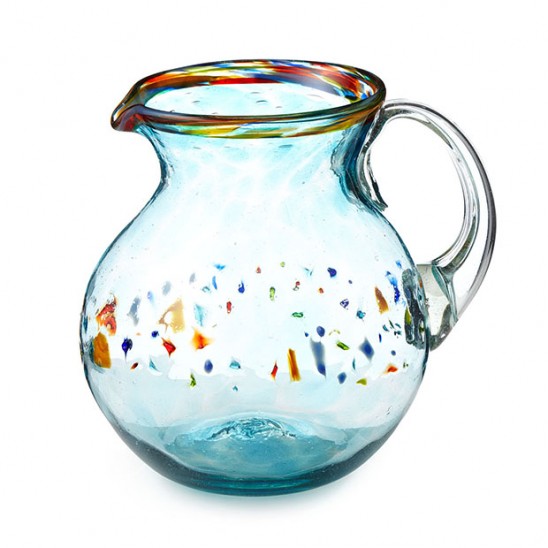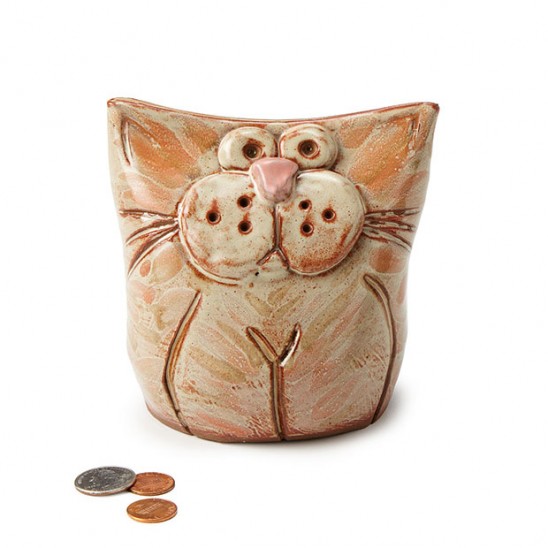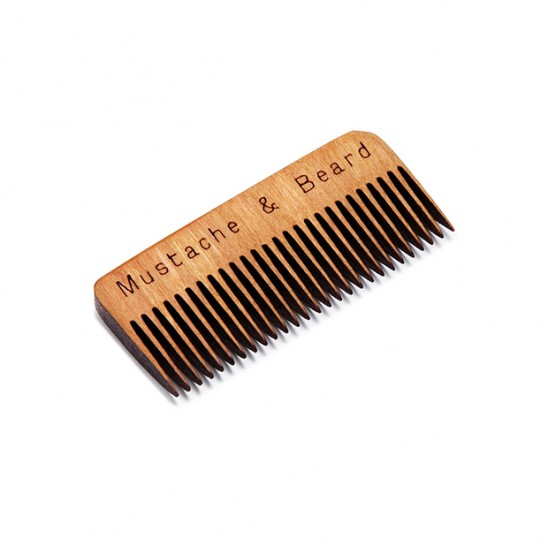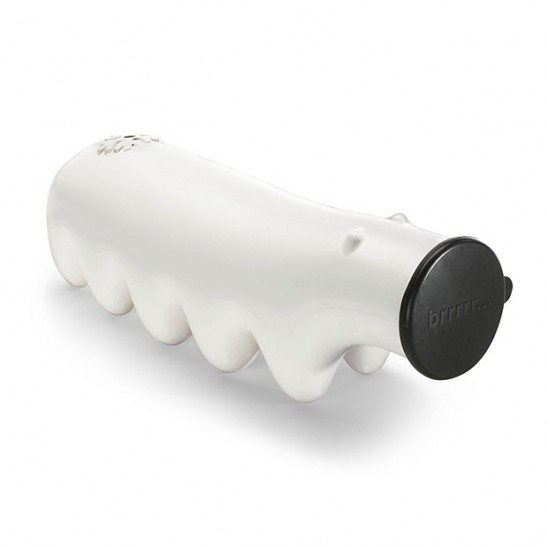 Forget water in your ears, too much swimming and you’ll emerge from the water sporting the fingertips of a wrinkled prune. Is that an unattractive side effect of showing off your cannonball or an awesome comic book-worthy evolutionary advantage? Answer: you’re a futuristic marvel! Studies have shown that the distinctive wrinkling improves your grip in water. Since the pruning also happens on our toes, evolutionary biologists suggest that it could have helped our ancestors get better footing in the rain or wet conditions. Feeling a little skeptical? Try picking up a wet marble with dry fingers and then again with wrinkled ones. Science!
Forget water in your ears, too much swimming and you’ll emerge from the water sporting the fingertips of a wrinkled prune. Is that an unattractive side effect of showing off your cannonball or an awesome comic book-worthy evolutionary advantage? Answer: you’re a futuristic marvel! Studies have shown that the distinctive wrinkling improves your grip in water. Since the pruning also happens on our toes, evolutionary biologists suggest that it could have helped our ancestors get better footing in the rain or wet conditions. Feeling a little skeptical? Try picking up a wet marble with dry fingers and then again with wrinkled ones. Science!
 As kids, it made perfect sense for a tiny ocean to be contained within the confines of a beautiful shell. What else would explain that soft whoosh-ing sound you heard when you held it up to your ear? It was obviously the same magic that brought stuffed animals to life when you left the room. Though we’re still convinced that teddy bears have feelings, science has taught us that there is indeed reasoning behind any phenomenon. So if it’s not the ocean inside that shell, what is it? Turns out it’s just good old fashioned ambient noise, which you wouldn’t normally hear on your own. However, the shell’s hard and curved internal surfaces act as a resonator, reflecting different sounds depending on the shell’s size and shape. The fact that the noise sounds like an ocean is just a romantic coincidence—put an empty glass up to your ear with your hand cupped over it and you’ll hear the same sound. Be that as it may, nothing beats re-living a day spent at the beach than listening to the soothing sounds within a beautiful conch shell.
As kids, it made perfect sense for a tiny ocean to be contained within the confines of a beautiful shell. What else would explain that soft whoosh-ing sound you heard when you held it up to your ear? It was obviously the same magic that brought stuffed animals to life when you left the room. Though we’re still convinced that teddy bears have feelings, science has taught us that there is indeed reasoning behind any phenomenon. So if it’s not the ocean inside that shell, what is it? Turns out it’s just good old fashioned ambient noise, which you wouldn’t normally hear on your own. However, the shell’s hard and curved internal surfaces act as a resonator, reflecting different sounds depending on the shell’s size and shape. The fact that the noise sounds like an ocean is just a romantic coincidence—put an empty glass up to your ear with your hand cupped over it and you’ll hear the same sound. Be that as it may, nothing beats re-living a day spent at the beach than listening to the soothing sounds within a beautiful conch shell.
 It’s your go-to when you’re packing for a picnic and the nicest thing to offer an overheated repairman who has been working on your broken AC unit for the last three hours. So what is it that makes lemonade so thirst quenching? Turns out sour flavors stimulate salivation more than any other taste, while acidity masks less-refreshing flavors like sugar. In addition, we’ve been conditioned to associate citrus with refreshment. From air fresheners to facial cleansers, the “bright” and “fresh” feel of grapefruit soap or lemon room sprays promise to keep things light and perky. However, we argue that the best spokesperson for a tall glass of lemonade is that little makeshift stand down the street with the toy cash register and the cute kid with a pitcher of the good stuff.
It’s your go-to when you’re packing for a picnic and the nicest thing to offer an overheated repairman who has been working on your broken AC unit for the last three hours. So what is it that makes lemonade so thirst quenching? Turns out sour flavors stimulate salivation more than any other taste, while acidity masks less-refreshing flavors like sugar. In addition, we’ve been conditioned to associate citrus with refreshment. From air fresheners to facial cleansers, the “bright” and “fresh” feel of grapefruit soap or lemon room sprays promise to keep things light and perky. However, we argue that the best spokesperson for a tall glass of lemonade is that little makeshift stand down the street with the toy cash register and the cute kid with a pitcher of the good stuff.
 Does your cat exhibit symptoms such as wheezing, coughing or difficulty breathing? If so, it may have feline asthma, a condition found in an estimated one out of every 200 cats. An inflammation of the lungs, it can be brought on by household dust, cigarette smoke, some types of kitty litter, and—irony of ironies—human dander. Feline asthma rates have increased as more and more cats are kept solely indoors, preventing them from finding fresh air and relief from their man-made allergies. As with people, there are inhalers available to treat aggravated cases, or sometimes even hospitalization can be called for, although its primary benefit may simply be removing the cat from the home environment. Or perhaps the best solution would be for cats to consider switching to hypoallergenic breeds of owner.
Does your cat exhibit symptoms such as wheezing, coughing or difficulty breathing? If so, it may have feline asthma, a condition found in an estimated one out of every 200 cats. An inflammation of the lungs, it can be brought on by household dust, cigarette smoke, some types of kitty litter, and—irony of ironies—human dander. Feline asthma rates have increased as more and more cats are kept solely indoors, preventing them from finding fresh air and relief from their man-made allergies. As with people, there are inhalers available to treat aggravated cases, or sometimes even hospitalization can be called for, although its primary benefit may simply be removing the cat from the home environment. Or perhaps the best solution would be for cats to consider switching to hypoallergenic breeds of owner.
 If you’re the Russian emperor, then you certainly might think so. In 1698, Peter the Great returned to Russia after a tour of Europe, ready to bring his own country into the “modern” world. In addition to governmental reforms, economic reforms and military advancement, he wanted to update the nation’s fashion sense—and clean-shaven faces were all the rage on the Continent. Peter started his campaign right away, at the formal reception welcoming him back from his European tour. After greeting his guests, he brought out a straight razor and began shaving off the men’s beards! The guests were horrified, but were in no position to deny their ruler. He made beardlessness the law, and his police were even known to shave offenders in the street. There was, not surprisingly, much resistance to such a decree, and eventually Peter compromised. Instead of repealing the law, he instituted a beard tax. Those who wished to grow their facial hair could receive permission to do so for a yearly sum, which added to Peter’s coffers while allowing his subjects to save face.
If you’re the Russian emperor, then you certainly might think so. In 1698, Peter the Great returned to Russia after a tour of Europe, ready to bring his own country into the “modern” world. In addition to governmental reforms, economic reforms and military advancement, he wanted to update the nation’s fashion sense—and clean-shaven faces were all the rage on the Continent. Peter started his campaign right away, at the formal reception welcoming him back from his European tour. After greeting his guests, he brought out a straight razor and began shaving off the men’s beards! The guests were horrified, but were in no position to deny their ruler. He made beardlessness the law, and his police were even known to shave offenders in the street. There was, not surprisingly, much resistance to such a decree, and eventually Peter compromised. Instead of repealing the law, he instituted a beard tax. Those who wished to grow their facial hair could receive permission to do so for a yearly sum, which added to Peter’s coffers while allowing his subjects to save face.
 You might be surprised to learn the word “chauvinist” is based on a person’s name—that would be Nicolas Chauvin, of France. Chauvin was famous not for his mistreatment of women, but for his self-sacrificing patriotism. If the stories are to be believed (and some historians suggest they should not be), Chauvin was a soldier who served in the armies of Napoleon Bonaparte. So fierce was his loyalty to his leader that he continued his career as a soldier even after seventeen combat wounds, including a broken shoulder, three lost fingers, and a disfiguring scar across his face. Fighting in the doomed battle at Waterloo, he is reputed to have shouted, “The Old Guard dies, but does not surrender!” In the generation after Waterloo, however, Napoleon became an object of general ridicule, and Chauvin’s unquestioning allegiance was popularized as an example of foolish fanaticism. It wasn’t until the feminist movement in the 20th century that this term came to be applied to unthinking devotion to one’s own gender.
You might be surprised to learn the word “chauvinist” is based on a person’s name—that would be Nicolas Chauvin, of France. Chauvin was famous not for his mistreatment of women, but for his self-sacrificing patriotism. If the stories are to be believed (and some historians suggest they should not be), Chauvin was a soldier who served in the armies of Napoleon Bonaparte. So fierce was his loyalty to his leader that he continued his career as a soldier even after seventeen combat wounds, including a broken shoulder, three lost fingers, and a disfiguring scar across his face. Fighting in the doomed battle at Waterloo, he is reputed to have shouted, “The Old Guard dies, but does not surrender!” In the generation after Waterloo, however, Napoleon became an object of general ridicule, and Chauvin’s unquestioning allegiance was popularized as an example of foolish fanaticism. It wasn’t until the feminist movement in the 20th century that this term came to be applied to unthinking devotion to one’s own gender.
 This is a debate that rages on in barbecue country, with passionate advocates on both sides. But when a blind taste test was conducted, it was discovered that most people can’t actually taste any difference between the two. It’s a tie! The exception appears to be in cases where the food in question needs to be cooked for a long time—and then charcoal appears to have the upper hand. What gives it that slight advantage? Smoke. Some gas grills have built in “vaporizers” that create smoke from dripping grease, but it’s not the kind of smoke that imparts much flavor to the food. But on the other hand, charcoal doesn’t get a free ride for flavor, either. A lot of quick-starting charcoal has added chemicals or is made using sawdust and glue, which can add an unpleasant taste to your foods. It seems that, in the end, either charcoal or gas can be great as long as the barbecuing is (eh-hem) well done.
This is a debate that rages on in barbecue country, with passionate advocates on both sides. But when a blind taste test was conducted, it was discovered that most people can’t actually taste any difference between the two. It’s a tie! The exception appears to be in cases where the food in question needs to be cooked for a long time—and then charcoal appears to have the upper hand. What gives it that slight advantage? Smoke. Some gas grills have built in “vaporizers” that create smoke from dripping grease, but it’s not the kind of smoke that imparts much flavor to the food. But on the other hand, charcoal doesn’t get a free ride for flavor, either. A lot of quick-starting charcoal has added chemicals or is made using sawdust and glue, which can add an unpleasant taste to your foods. It seems that, in the end, either charcoal or gas can be great as long as the barbecuing is (eh-hem) well done.
 Nothing beats the heat of a BBQ better than a tall glass of ice-cold lemonade. But did it ever occur to you that you should maybe thank a very special Bostonian for that chilly, chilly goodness? Up until the early 1800s, ice was mostly just a hazard of winter. However, to wealthy Boston brothers Frederic and William Tudor, it was a luxury they could afford. After joking about how their chilled beverages would be the envy of the colonists in the West Indies, Frederic decided to test out that theory and ship the ice to the French island of Martinique. No ship in Boston would agree to ship the precarious cargo, and so after buying their own boat, they set sail with 80 tons of ice on board. The ice arrived in perfect condition, but the islanders were rightly suspicious of the giant blocks of ice they were being told to buy and consume, and so their trip was a failure.
Nothing beats the heat of a BBQ better than a tall glass of ice-cold lemonade. But did it ever occur to you that you should maybe thank a very special Bostonian for that chilly, chilly goodness? Up until the early 1800s, ice was mostly just a hazard of winter. However, to wealthy Boston brothers Frederic and William Tudor, it was a luxury they could afford. After joking about how their chilled beverages would be the envy of the colonists in the West Indies, Frederic decided to test out that theory and ship the ice to the French island of Martinique. No ship in Boston would agree to ship the precarious cargo, and so after buying their own boat, they set sail with 80 tons of ice on board. The ice arrived in perfect condition, but the islanders were rightly suspicious of the giant blocks of ice they were being told to buy and consume, and so their trip was a failure.
William dropped out of the business but Frederic persisted, landing himself in debtor’s prison three times. Eventually, he started using the age-old “first one’s free” tactic while living in South Carolina. He offered chilled beverages to sweltering Southerners, taught restaurant owners how to make ice cream, and even offered it to doctors in need of a numbing agent. The crowds were convinced and Frederic started an ice harvesting assembly line using frigid river waters. Competing ice distributers began popping up, the need for iceboxes became apparent, and now we can enjoy treats directly from the freezer. So the next time you crack a cold one, pour one out for the original Ice Man.
